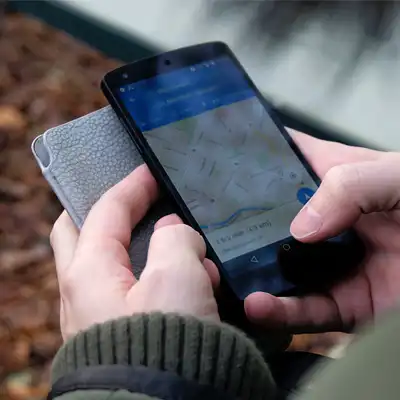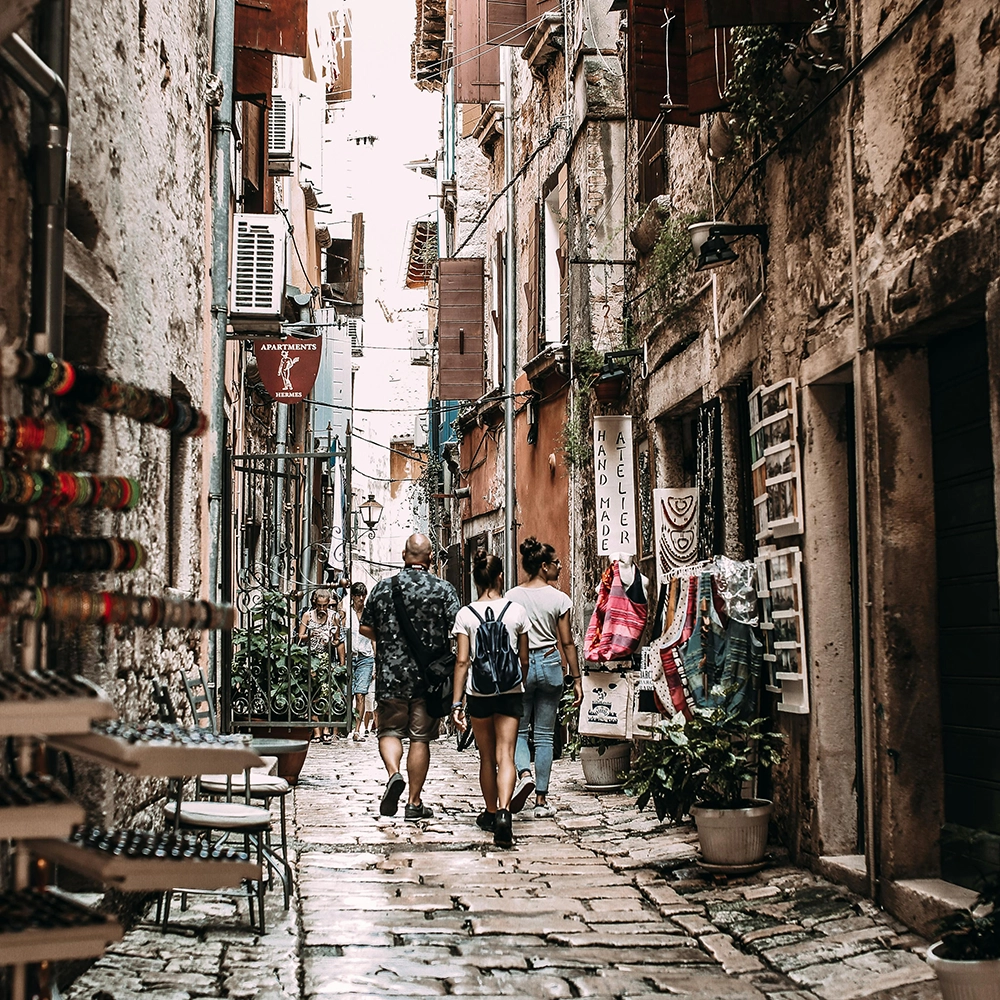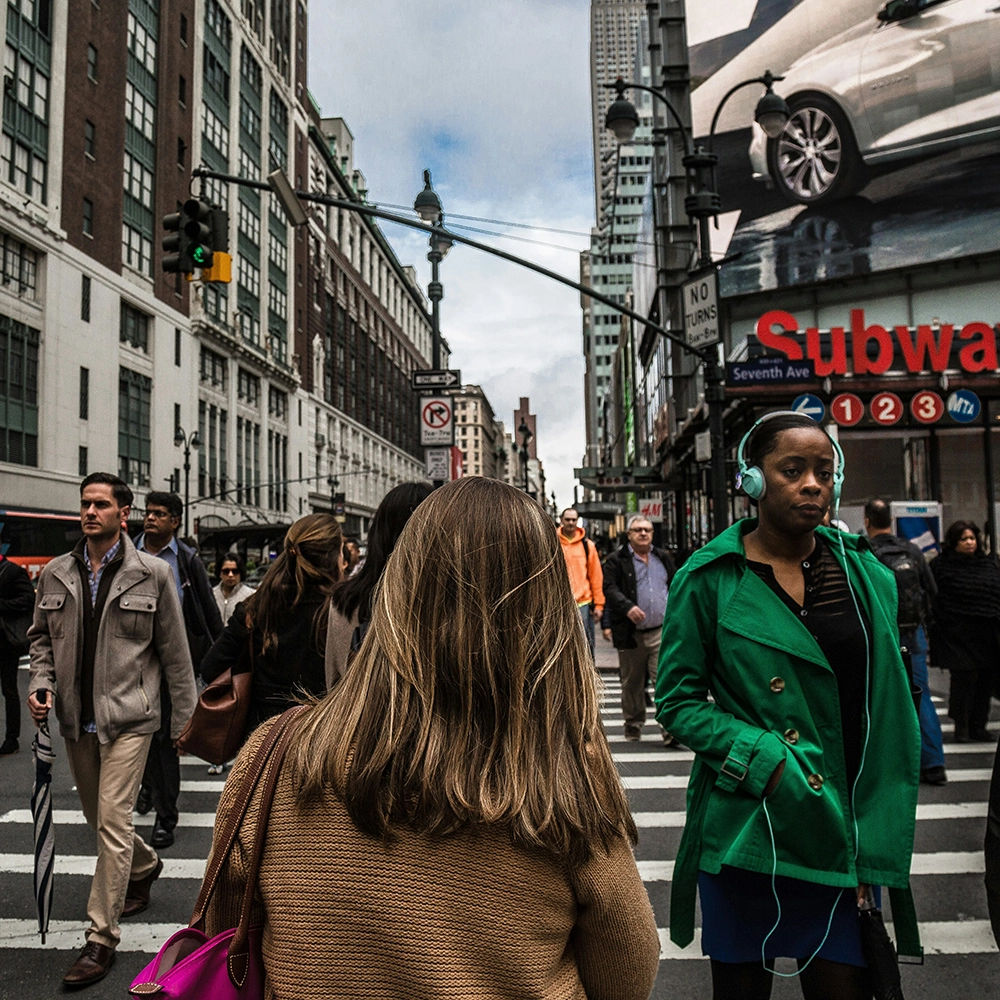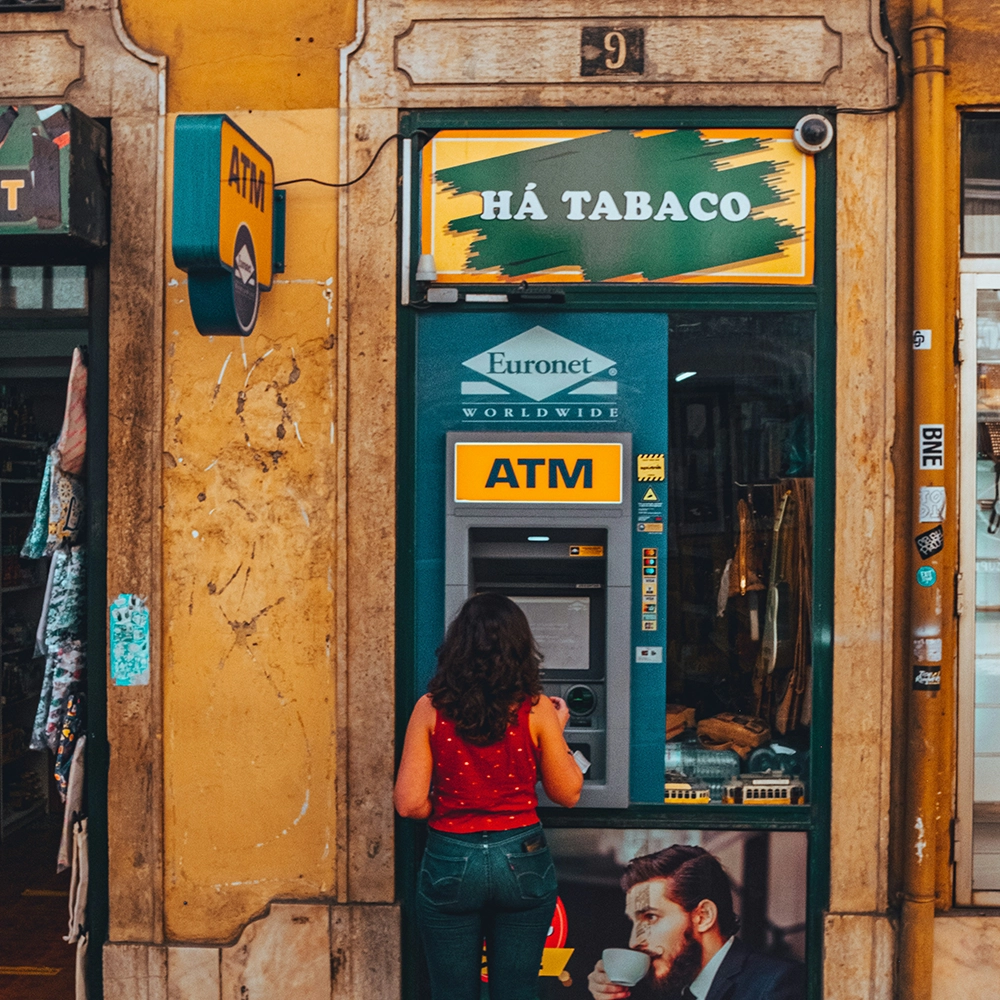It’s common — and normal — to wonder how to travel safely, especially when venturing abroad. Between natural disasters, terrorist attacks and civil unrest, illness, and all the other news that dominates our phones and televisions, it only increases existing anxiety.
Fear of the unknown is always difficult. Fortunately, even though you can’t predict when or if a catastrophic event will occur, you can still take steps to prepare yourself.
Travel Safety Tips
1. Pay attention to the news.
What’s happened in the past few months? Is there an upcoming event that could make travel to that area potentially dangerous?
One way to stay on top of this is to enroll in the United States Department of State’s Smart Traveler Enrollment Program (STEP). Setting up an account is easy and free. After you register your trip on the site, you’ll receive travel alerts and warnings from the Department of State.
It also provides three other key benefits:
- You receive important safety notices from the embassy in your destination country.
- It helps the U.S. Embassy contact you for many types of emergencies (natural disaster, civil unrest, family emergency).
- Family and friends can use STEP to contact you in an emergency.
You’ll also have the option to provide emergency contacts. This should always be a trusted person who is not traveling with you.
Be sure to check out the Centers for Disease Control and Prevention (CDC) Travelers’ Health site, too. There’s tons of valuable information about staying healthy during your trip. You can also select your destination, and the CDC will give you a list of alerts, vaccines, and preventive health steps to take for that country.
2. Share your itinerary.
You may not be able to predict your whereabouts every minute of the day (nor may you want to), and that’s OK. Still, it’s best to have at least an idea of where you’ll be and when in case of emergencies.
Share this information with trusted people back home, so if they see on the news that there was an earthquake, they’ll know if you are in harm’s way. That knowledge can give them peace of mind and, if necessary, spur them to action to arrange help for you.
Once you’ve shared your itinerary, arrange designated times to check in with those friends and family at home. This is especially important if you’re traveling solo. Plan to call, text, or email periodically just so you can let them know you’re doing well and having a great time.
If you’re traveling with others who are venturing out on their own, establish designated check-in times with them as well.
3. Get the best travel apps.
The app Life360 allows you to see exactly where each member of your travel group is on a map, along with their current address. You can also send messages or a help alert to your circle of connected members.
If you aren’t sure about your phone’s international service, try WhatsApp. This app lets you text, call, and video chat over Wi-Fi and is a great way to stay in touch overseas. You can even use WhatsApp to contact Seven Corners if you need travel assistance.
Cloud-based apps for storing travel documents — identification cards, insurance cards, passport information — are also great if you get in a jam. Having access to digital copies of this information can be extremely helpful if you get pickpocketed or lose your documents.
4. Familiarize yourself with your destination.
This goes beyond where you’re going to stay and which local foods to try.
- Research which neighborhoods might be less safe so you know where to avoid, especially after dark.
- Gain a basic understanding of local customs and laws. The last thing you want is to find yourself in an uncomfortable or unsafe position simply because you didn’t know you were supposed to take your shoes off before entering a temple or that you shouldn’t touch someone of the other gender, even just for a handshake.
- Know how to contact emergency personnel — in Europe, you dial 112 for a general emergency — and what to do if you get sick while traveling.
- If you’re going to be in one place for a while, like you might if you’re trying out the digital nomad lifestyle, figure out where nearby hospitals are.
5. Practice situational awareness.
Simply put, situational awareness is the ability to understand your surroundings and take appropriate action based on what you observe. It’s one of the most useful skills you can develop as a traveler.
Watching your surroundings can alert you to a pickpocket or keep you safe from reckless drivers. This doesn’t mean you should be paranoid, of course, but you should try to stay aware of what’s happening nearby.
You also want to be aware of your belongings, not just your person. Don’t leave luggage unattended, even “only for a second.” Carry your backpack or purse on the front of your body where you can keep an eye on it when you’re in a crowd. Better yet, put your valuables in a front pocket of your clothes where it’s tougher for someone to grab unnoticed.
6. Embrace your beginner status.
“The older I get, the tougher it is for me to feel like a beginner,” says travel writer Grace Lower. “No matter the task, I’m always reluctant to acknowledge when I don’t know what I’m doing. Some might call it determination, but if we’re honest, it’s pride.”
If left unchecked, that same kind of pride can inadvertently create dangerous travel situations.
Whether you’re snowboarding down a hill that’s way too advanced for you or pretending to understand instructions when you don’t speak the language, remember that your pride matters far less than your safety.
Rather than saving face, speak up when you don’t understand something and enjoy the slow but rewarding process of doing things the right way.
7. Keep a low profile.
There’s value in blending in when you’re on the road, especially if you’re traveling alone. That can mean adopting a more modest form of dress in conservative cultures, speaking more quietly in reserved cultures, and minding your manners in every culture.
If you’re walking through a city, avoid stopping to look up at buildings. Instead, admire them inconspicuously.
If you are lost or otherwise confused, avoid letting any distress show on your face. Instead, calmly find someone who might be able to assist you, like a hotel concierge, a police officer, or a family with older children.
By blending in as much as you can, you’ll feel less vulnerable and avoid unwanted attention from passersby.
8. Brush up on local language and cultural cues.
As a visitor, you aren’t obligated to become an expert about your destination before you arrive. You should, however, have a basic understanding of your host city’s language and culture.
Start simple by learning phrases like excuse me, help, please, and thank you. Then move on to words and phrases specific to what you’ll be doing. “Where is the trailhead?” or “Is there Wi-Fi here?” perhaps.
Understand a little bit of your city’s history and how current events have impacted locals. With a working knowledge of your destination’s language and culture, you’ll avoid misunderstandings, navigate more smoothly, and be able to ask for help if you need it.
9. Manage your money.
Regardless of your budget, be mindful of how you handle your money while you’re on the road. Before you depart, make sure to call your bank to let them know about your trip. Also, check to see whether your card is accepted in the country you’ll be visiting.
To avoid unwanted attention when using cash, be inconspicuous when you take money out of your wallet, and stick with bills in smaller denominations.
If you prefer using cards abroad, be cautious when using ATMs or entering your PIN in busy areas.
Bring extra cards and cash to store in your hotel room in case your wallet or purse gets stolen. There’s not much that’s scarier than being stranded in a foreign country without money. Taking preventative measures can go a long way.
10. When in doubt, say no.
One of the most storied benefits of travel is the way it pushes boundaries and forces people out of their comfort zones. There’s certainly value in embracing new experiences, but it’s also important to listen to your gut.
If something seems uncomfortable or unusual, speak up. Say no to anything that feels like a scam or could put you in harm’s way.
Forget what travel and lifestyle gurus say. It’s okay to forgo a new experience if saying yes makes you feel unsafe.
11. Make healthy decisions.
Some might call this not making bad choices. However you label it, it’s about not putting yourself in risky situations.
Don’t drink to excess, and don’t leave your drinks unattended. It’s no secret that if you’re drunk, you’re more likely to do something you regret, something unsafe, or both. The same goes for other substances.
Don’t do drugs. The risk of impairment isn’t worth it. Plus, other countries can have extremely stiff penalties for foreigners with drugs. You really don’t need a first-hand account of your host country’s legal system.
Don’t walk through dark, unknown alleys at night. Said Luke Armstrong, “In an interview I did with a police officer for a story about the safety of my expat base of Antigua, Guatemala, I was told, ‘Too many tourists have made the grave error of walking around at night in a country they don’t know.’”
Walk with a buddy, stay where it’s well-lit, and if you can’t do that, splurge for a cab. Saving a few dollars by not getting a ride is not worth the risk.
Do get enough sleep. This might sound like a strange tip for travel safety, but it’s all about eliminating impaired decision making. When we’re sleepy, we tend to make bad choices or be less aware of potential risks around us. Sleep well, travel well.
12. Get expert support.
We already mentioned enrolling in STEP. There are other pros who can help you have a safe and fun trip.
Only book tours and excursions with reputable companies. You’re less likely to get scammed, and they will have your safety as a top priority. They should operate with an abundance of caution when it comes to where they take you and how they organize your tour.
When you buy travel insurance, choose a company that provides 24/7 emergency assistance services. All Seven Corners plans come with non-insurance assistance benefits. That means that if you need help finding medical care, getting in touch with the embassy, or support in any other type of urgent situation, our Assist Team is available so you don’t have to figure it out all on your own.
Travel Insurance for a Safe Trip
Travel insurance — protection for your money, health, and belongings — won't necessarily keep you safe, but it can help you when something unexpected does happen.
Here are some benefits to look for when you’re trying to travel safely during uncertain times.
Coverage if you need to cancel your trip
Most travelers want to know if you can cancel your trip and get your money back if you’re scheduled to visit a location when a terrorist incident or uptick in COVID cases occurs. Or, maybe you’ve simply become more fearful about traveling because of recent events and want to cancel or interrupt your trip.
Most trip insurance plans have some type of coverage for a terrorist incident, provided the act of terrorism occurs in your destination city within a certain number of days of your scheduled arrival.
Normally, in order for a terrorist event to be covered, the U.S. government must declare the incident is an act of terrorism. You must buy the plan before the event meets the definition a terrorist incident. Why? Because at that point, it’s what we call a known peril. You can’t buy car insurance once your car has been wrecked; you must have the coverage in place before that happens.
What if you want to cancel your trip for any type of scary event and get your nonrefundable trip cost back? You need to add the optional Cancel for any Reason (CFAR) benefit to your plan. With this, you can cancel your trip for literally any reason, including fear of travel or simply changing your mind about taking your trip.
While CFAR lets you cancel your trip for any reason and still receive a reimbursement of 75% of your nonrefundable trip deposits, there are a few requirements for purchasing it. You must buy the CFAR benefit within a specified timeframe, usually 20 days, of making your first trip deposit/payments. If you add additional travel arrangements to your itinerary later, you must also buy coverage for those prepaid, nonrefundable expenses within 15 days of subsequent deposits.
Additionally, you must cancel the trip at least two days before your scheduled departure in order to be reimbursed.
Coverage if you need to interrupt your trip
Sometimes a situation gets worse after you’ve left home and you decide to end your trip early. To be reimbursed for the unused portions of your prepaid, nonrefundable trip expenses, you need trip interruption coverage. Like trip cancellation, these benefits only apply if you interrupt your trip for a covered reason as listed in your plan document.
To have the flexibility to interrupt your trip beyond the covered reasons, consider adding the optional Interruption for Any Reason (IFAR) benefit. With this coverage, you can return home early or move along to your next destination ahead of schedule for any reason you wish without forfeiting all of your prepaid, nonrefundable expenses (IFAR reimburses you for 75% of those expenses). IFAR is especially helpful if you arrive at a destination that feels unsafe and you change your mind about remaining there.
Like CFAR, you must purchase IFAR within 20 days of your initial trip deposit and within 15 days of paying for subsequent travel arrangements.
Coverage for quarantine
We all became familiar with quarantining during the COVID pandemic, but that isn’t the only illness that might require you to isolate and not be able to travel. Measles and yellow fever, for example, can require quarantining. Travel insurance can help if your trip is disrupted because of that.
Look for trip delay coverage that will help with expenses related to your quarantine. This can include paying for additional food, lodging, and transportation if you have to alter your travel arrangements when you’re required by a physician to quarantine.
Coverage if you are hurt in a terrorist event
Trip insurance plans typically cover medical expenses due to an accidental injury occurring during your trip, so if you were hurt in a terrorist attack, it would be covered. There are additional requirements for these types of claims (such as not being involved in the terrorist event), so be sure to review your plan document before your trip to understand those restrictions and exclusions.
It’s important to note that war is listed as a general exclusion for most plans on the market. That means we will not pay for any loss or expense caused, due to, arising or resulting from war or act of war, including invasion, acts of foreign enemies, hostilities between nations (whether declared or undeclared), or civil war. Be sure to read the plan document to fully understand what is covered as well as exclusions and limitations.
Plans vary, so you can find the right protection for you and your trip, even if your situation is unique. Get a quick quote at SevenCorners.com or talk to a licensed agent who can help you find the perfect travel insurance for your trip and help you travel safely and with peace of mind.







